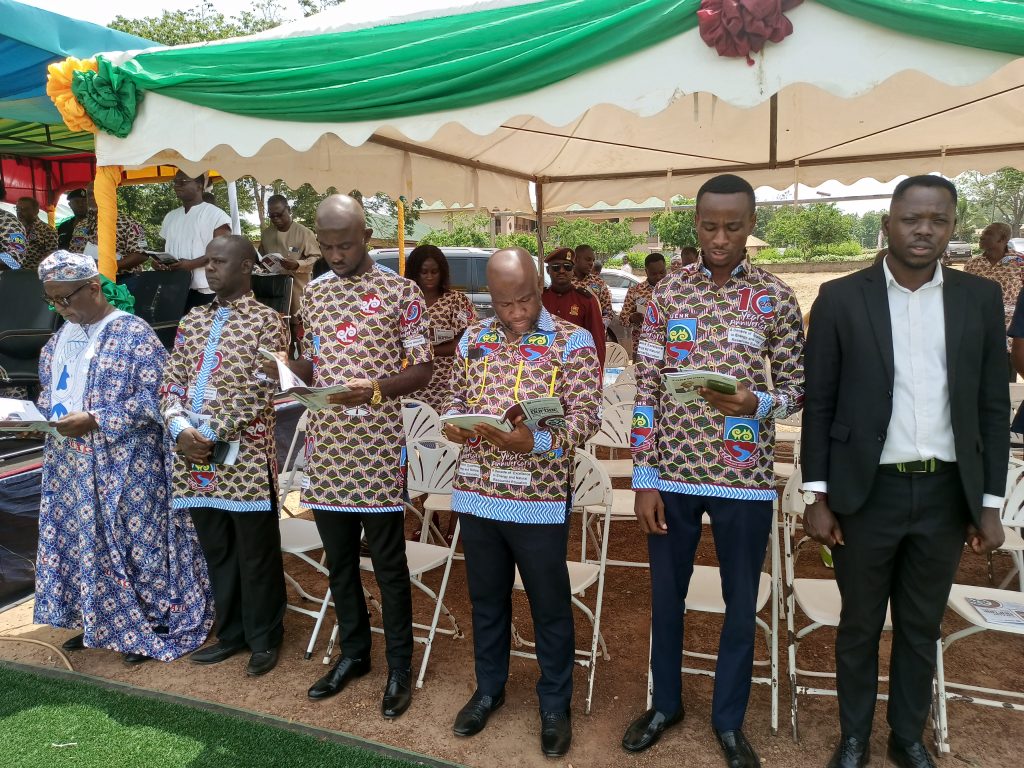By Regina Benneh / Benjamin Akoto
Sunyani, April 3, GNA – Professor Elvis Asare-Bediako, the Vice-Chancellor of the University of Energy and Natural Resources (UENR), has reaffirmed the University’s commitment to providing transformative education as its top priority.
He said the challenges that society continued to face required more graduates with well-equipped knowledge, skills and character were produced to impact the world positively.
He stated the University had the vision to broaden its base in areas of energy and natural resources with the application of interdisciplinary approach, to intersperse study and research in those areas with other essential disciplines like economics, law, governance and entrepreneurship.
“We wish to explore cutting edge approaches to teaching and research and attain excellence in providing manpower needs to solve the challenges in these critical areas for national growth and development,” the VC added.
Prof. Asare-Bediako was speaking at a durbar to climax the 10th anniversary celebrations of the establishment of the University in Sunyani, which was held on the theme: ”A decade of Academic Excellence in Energy and Natural Resources Education: Commemorating the Past, Celebrating the Present and Shaping the future for National Development.”
He said the University, which started with a staff population of 47 in 2012, had recorded an increase to more than 800 in 2022, and from the 154 foundation students admitted in the 2012/2013 academic year, the institution could of an increase to more than 13,000 students pursuing studies in 56 diploma, undergraduate and postgraduate academic programmes under eight faculties and schools.
”We hope to increase our programmes of study and double our student intake within the next five years to allow the Ghanaian youth an opportunity to receive tertiary education in the areas of Science, Technology, Engineering, Arts and Mathematics (STEAM),” Prof. Asare-Bediako assured.

He stated that it was satisfying that students of the institution were not just increasing in numbers but were also recording outstanding performances in their areas of study.
The VC said the University’s vision could be fully achieved, if it became completely operational by acquiring the necessary infrastructure like lecture halls, administrative office spaces, practical laboratories and student hostels and halls of residence, and the needed government support to complete the construction of the Nsoatre campus to house the Schools of Engineering, Energy and Sciences.
Prof. Asare-Bediako announced the University had since the past five years been holding STEM festivals to increase the desire of pre-tertiary students in the study of science and engineering programmes.
He explained that students from the basic and second cycle institutions were invited through the cooperation of their respective school heads to participate in the festival, to groom them to pursue studies in the sciences and engineering for the future development of the country.
Highlighting on some successes, Prof. Asare-Bediako said the University was currently hosting a World Bank Regional Centre of excellence for the study of Energy and Environmental Sustainability of which an edifice had been built to serve that purpose and this was attracting several students from across Africa.
There was also an Earth Observation System installed with an Advanced Fire Information System for the detection and prediction of wildfire in the West African sub-region.
Prof. Asare-Bediako said the facility had the capacity for real-time wildfire detection in the sub-region, extending from Cameroon to Senegal.
He added the National Oceanic and Atmospheric Administration and the UENR had collaborated to install a COSMIC-2FORMOSAT-7 mission receiver at university for numerical weather modelling and forecast.
Mr Ignatius Baffour Awuah, the Member of Parliament for Sunyani West and Minister for Employment and Labour Relations, commended the University for its achievements within these periods, and express the hope that in the next few years it could attain even greater successes.
GNA